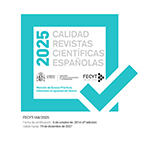¿Discursos divergentes? Encrucijadas sobre política educativa y globalización. Los casos de Chile y Venezuela
Resumen
Los países latinoamericanos han formado parte de los llamados capitalismos periféricos en el marco de la globalización del sistema-mundo, este posicionamiento ha tenido un fuerte impacto en el desarrollo del sector educacional, y su respectiva implicancia en el desarrollo nacional, condicionado por mecanismos de exclusión que operan a distintos niveles. En el caso de Chile, esto se ha llevado a cabo a través de mecanismos intrínsecos a las reformas educativas realizadas, coherentes con su discurso neoliberal y que han situado a la educación como una fuente de reproducción de la enorme desigualdad social, tendencia que se ha intentado revertir en la última década a través de políticas públicas orientadas a la regulación del sector. En el caso de Venezuela, su orientación de Estado-Docente con un alto componente ideológico contra-hegemónico, se orienta a un modelo de transformación social bajo un proyecto político “revolucionario” y heterodoxo en relación a las tendencias globales, donde su transformación discursiva y política genera nuevos mecanismos de conflicto social, pese a la existencia de un discurso público educativo de una alta vocación social, que se ve limitada por un aislamiento a distintos niveles. Ambos modelos han sido objeto de cuestionamiento social, debiendo reformular algunos de sus rasgos definitorios durante los años recientes. La interrogante que surge desde el análisis será ¿qué tipo de convergencias es posible identificar en las políticas educativas en dos países que han enfrentado el proceso de globalización económica de forma totalmente distinta?
Descargas
Descarga artículo
Licencia
La revista Política y Sociedad, para fomentar el intercambio global del conocimiento, facilita el acceso sin restricciones a sus contenidos desde el momento de su publicación en la presente edición electrónica, y por eso es una revista de acceso abierto. Los originales publicados en esta revista son propiedad de la Universidad Complutense de Madrid y es obligatorio citar su procedencia en cualquier reproducción total o parcial. Todos los contenidos se distribuyen bajo una licencia de uso y distribución Creative Commons Reconocimiento 4.0 (CC BY 4.0). Esta circunstancia ha de hacerse constar expresamente de esta forma cuando sea necesario. Puede consultar la versión informativa y el texto legal de la licencia.











